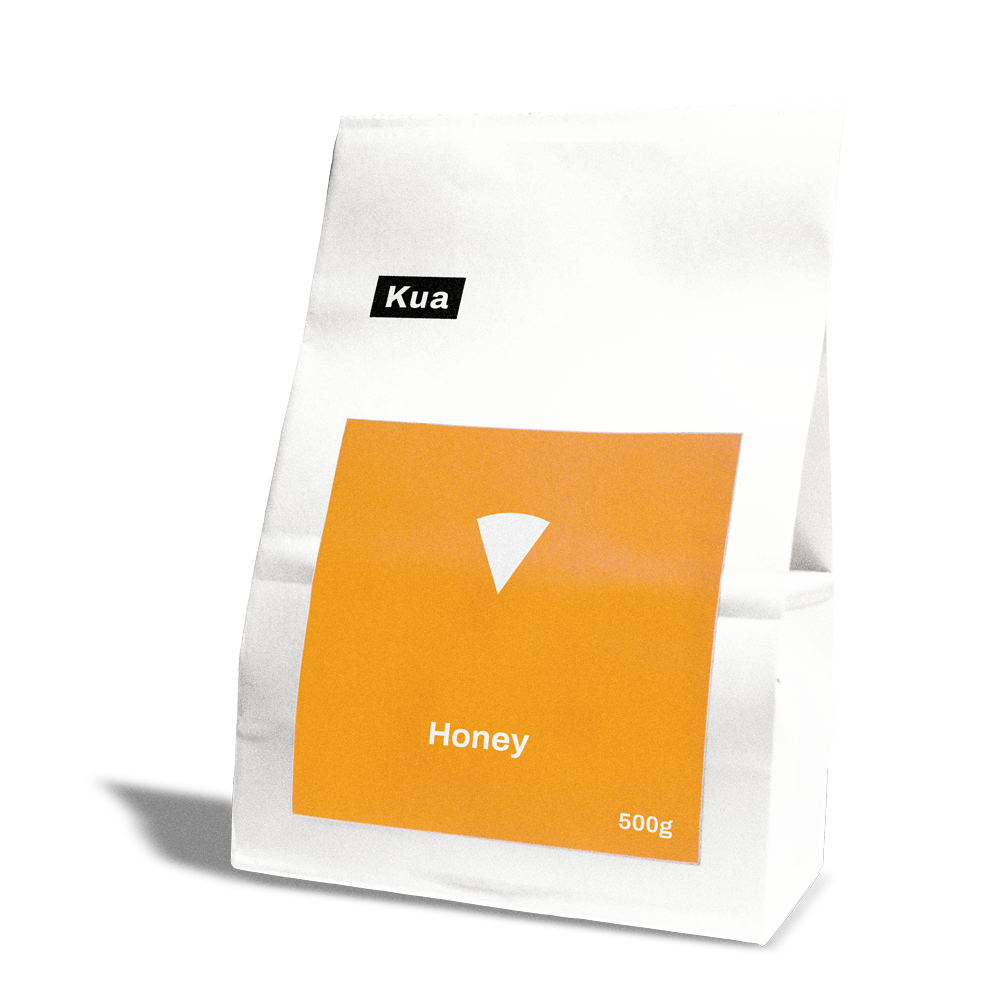

SINGLE ORIGIN
TASTES LIKE:
Coffee Blossom, Marmalade, and Almond Praline
Honey processing sits somewhere between washed and natural processing. It is a compromise for producers looking to have a cleaner flavour, though might not have access to water for a washed process and also want to reduce the risk of a fully natural process. It begins similarly to a washed process by pulping the coffee and removing the flesh, but instead of washing the coffee it is left sticky and dried with some residual mucilage. As expected this sits somewhere between washed and natural process drying time and the parchment turns a golden, honey colour as it dries. This is where the term honey comes from. Honey processed coffee often has a caramel sweetness, slightly muted acidity and some stewed fruit flavours. This harvest Kua Honey is from Sipi Falls, one of the more well known coffee and tourism regions. Sitting 2000 metres above sea level helps slow the maturation and ripening process, adding complexity and sweetness to the seeds that reside in the coffee cherry. The honey processed coffees retain this extra time and lend themselves to sweet almond praline and marmalade accompanied with a floral coffee blossom aroma.
Process: Honey
Varietal: SL14 & SL28
Region: Sipi, Mt Elgon
Country: Uganda
Footprint: 13.4 kg Co2-e per kilo
Couldn't load pickup availability

On Uganda's eastern boarder with Kenya, Mt Elgon sits proudly as an iconic coffee producing region. It has fallen from its global significance in the late 20th century, but is slowly regaining a place in the specialty coffee world. Many producers gave up on coffee when prices where poor and avenues to market disappeared, but with the help of Kua customers we can continue to partner with producers who are embarking on coffee careers once again.

Zukuka Bora is committed to providing meaningful work for their community, employing more than 250 local workers throughout the harvest season. Their operations have a huge flow-on effect for the region, with more children able to go to school, more families able to improve their homes, and more farmers embracing coffee for their livelihood.